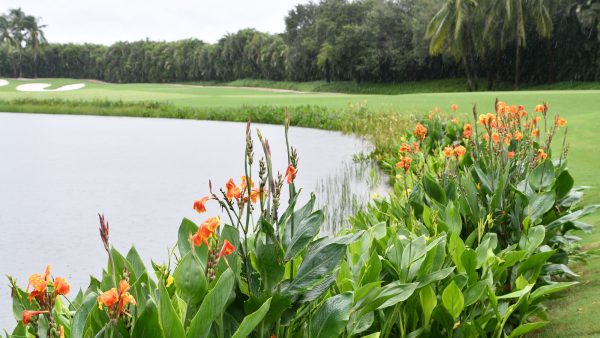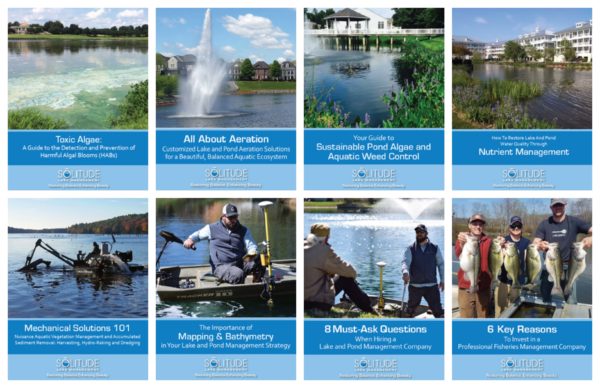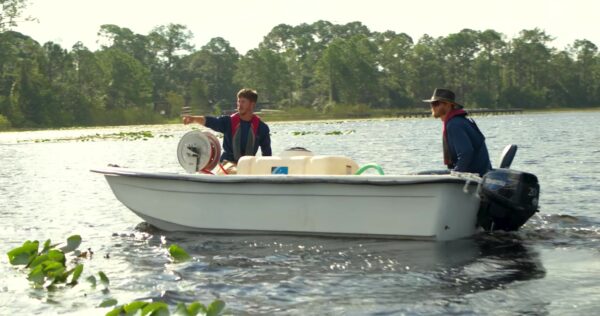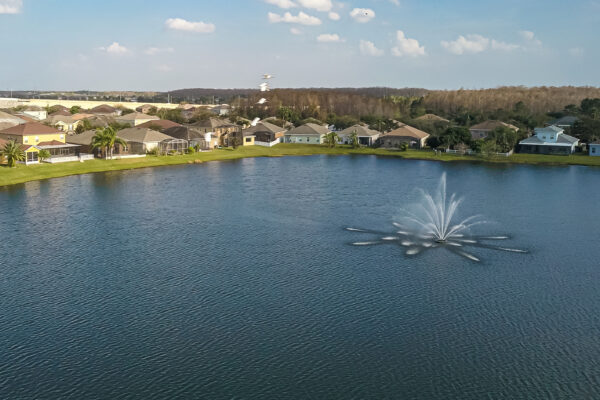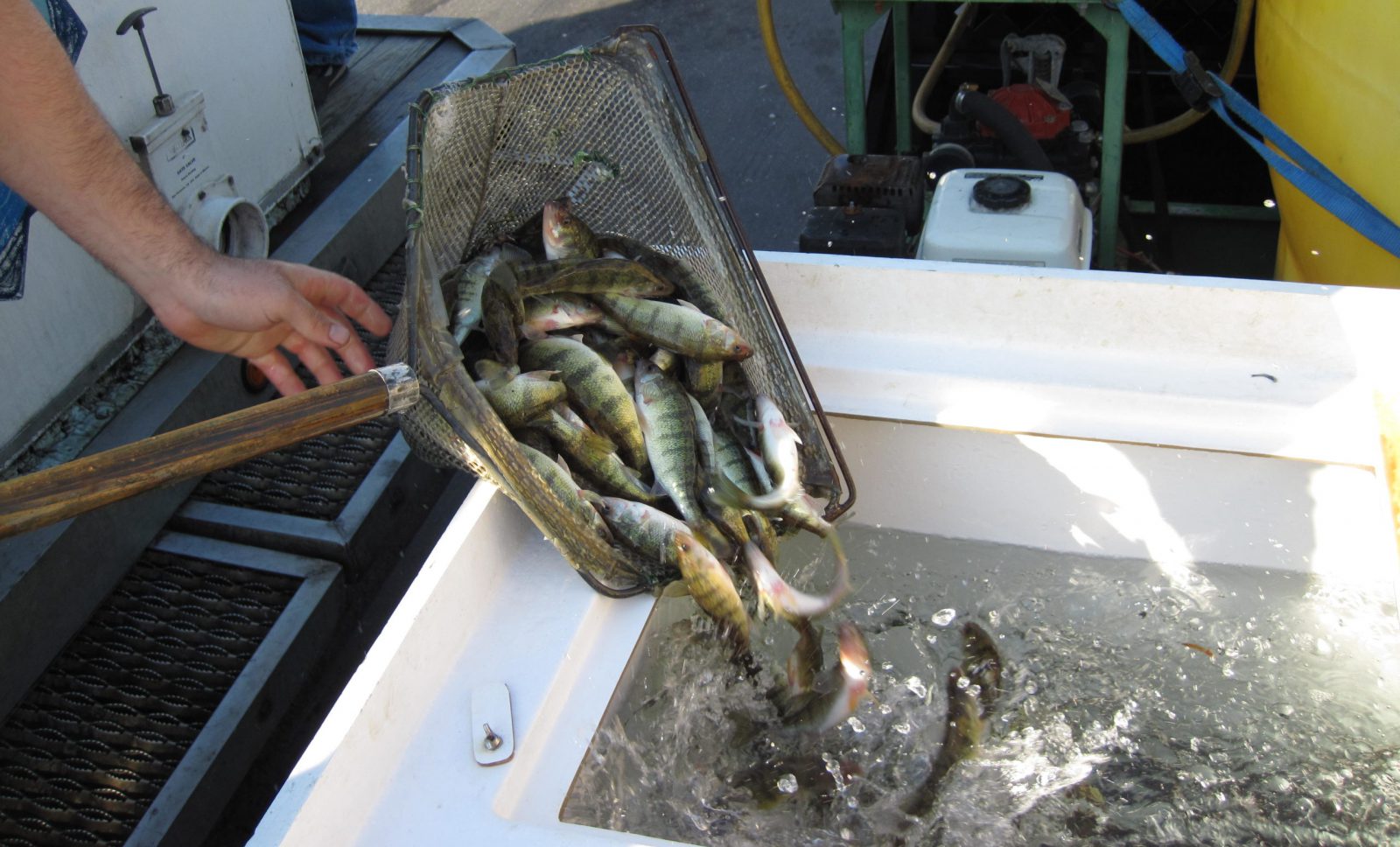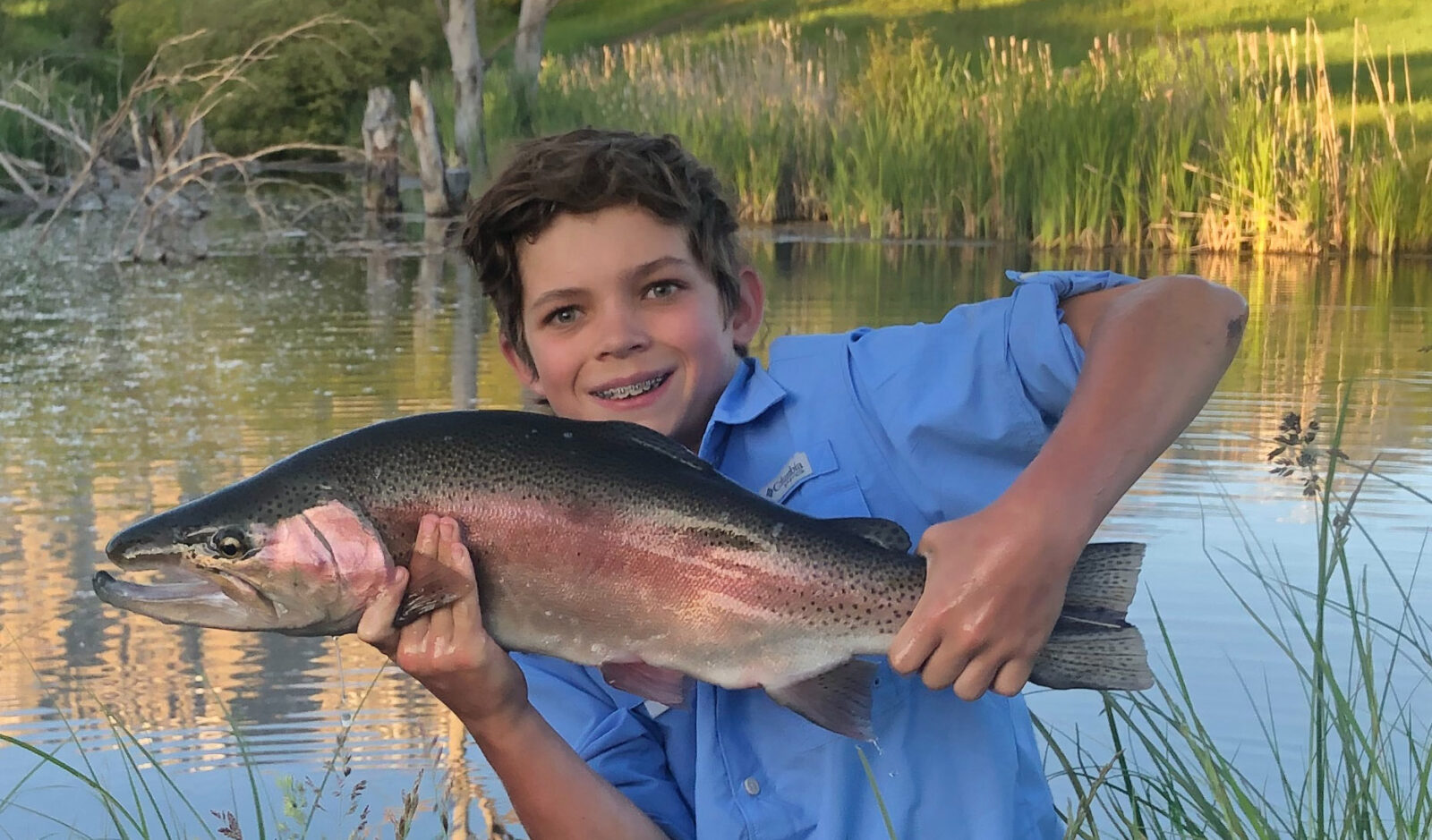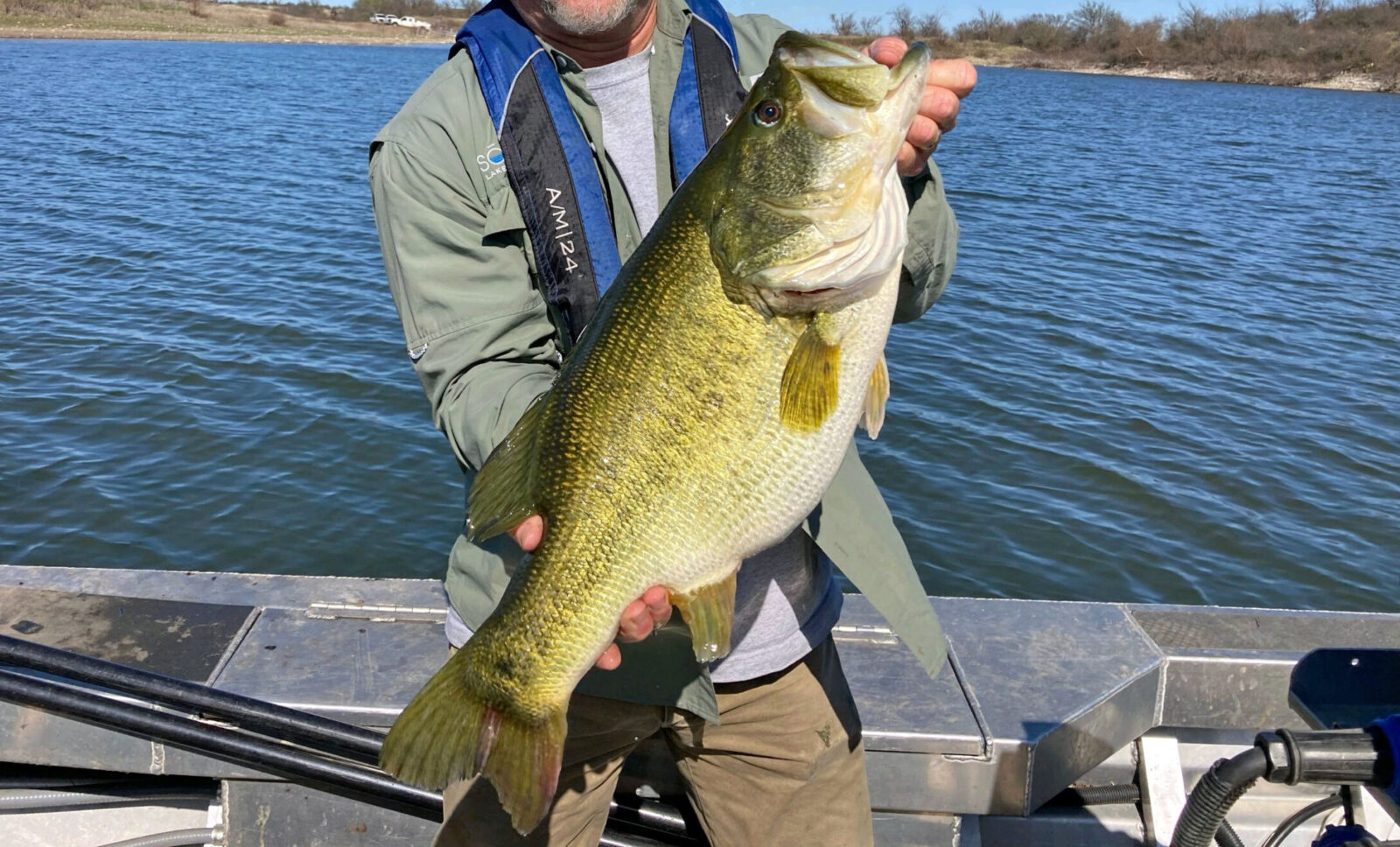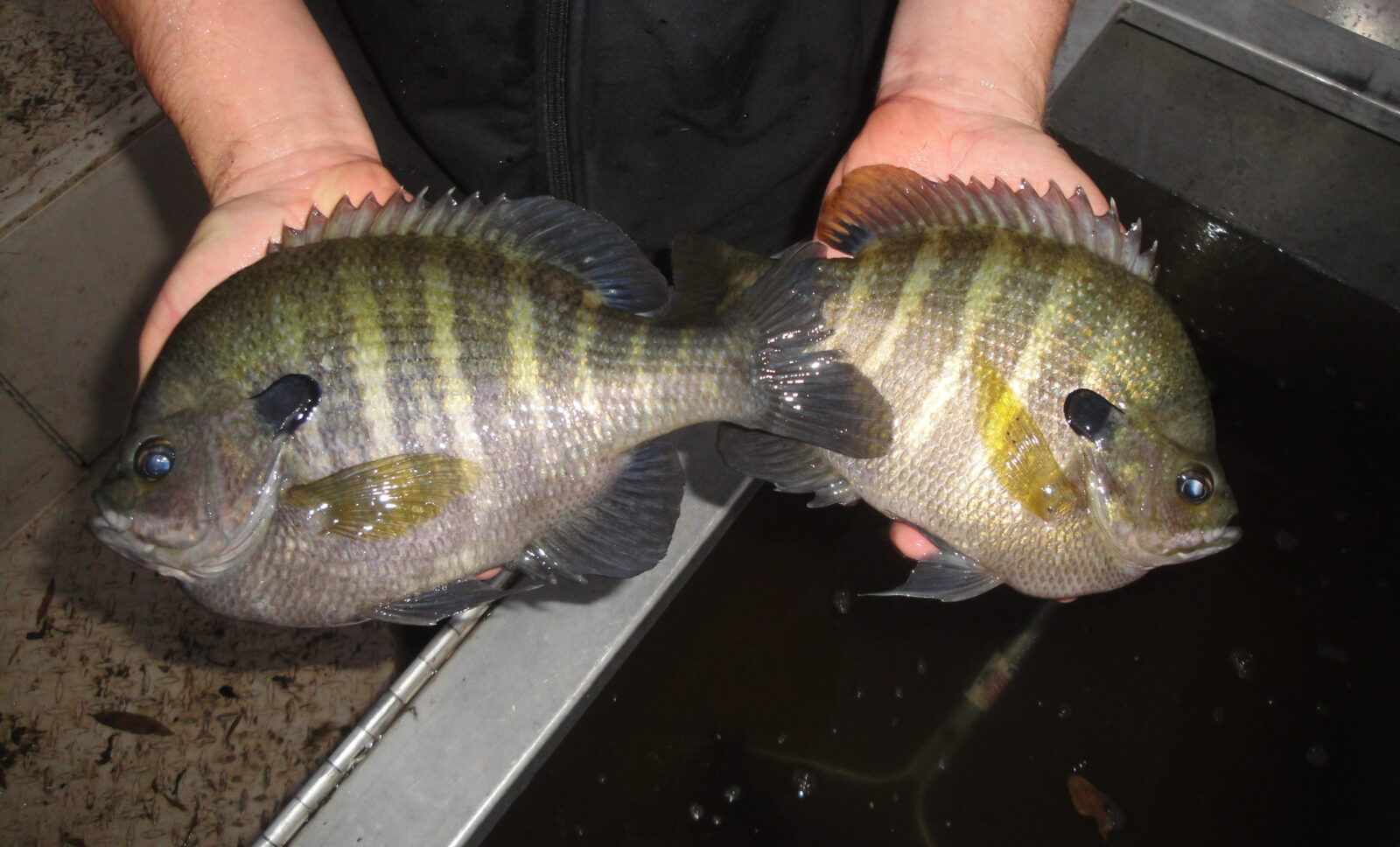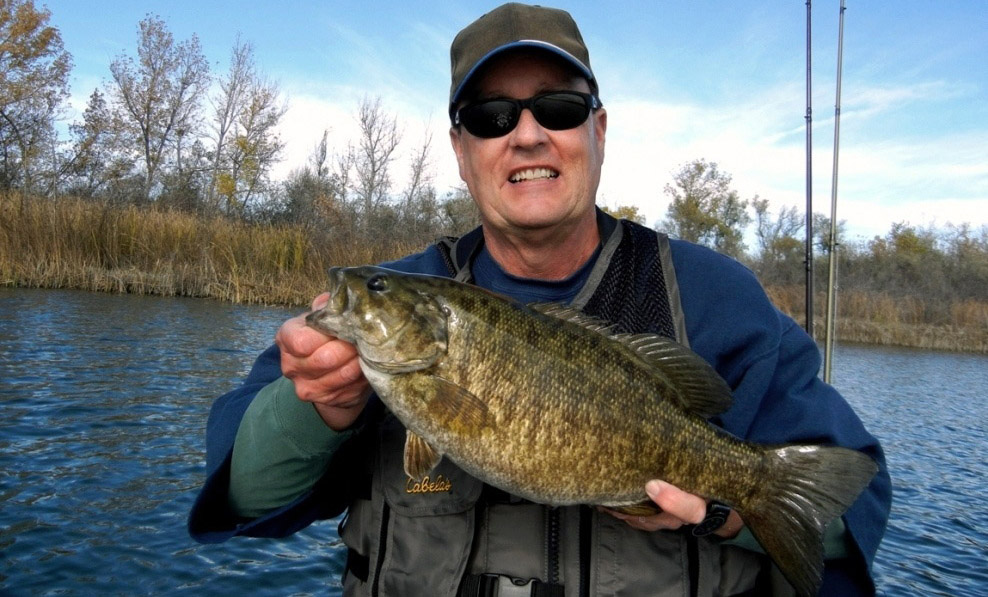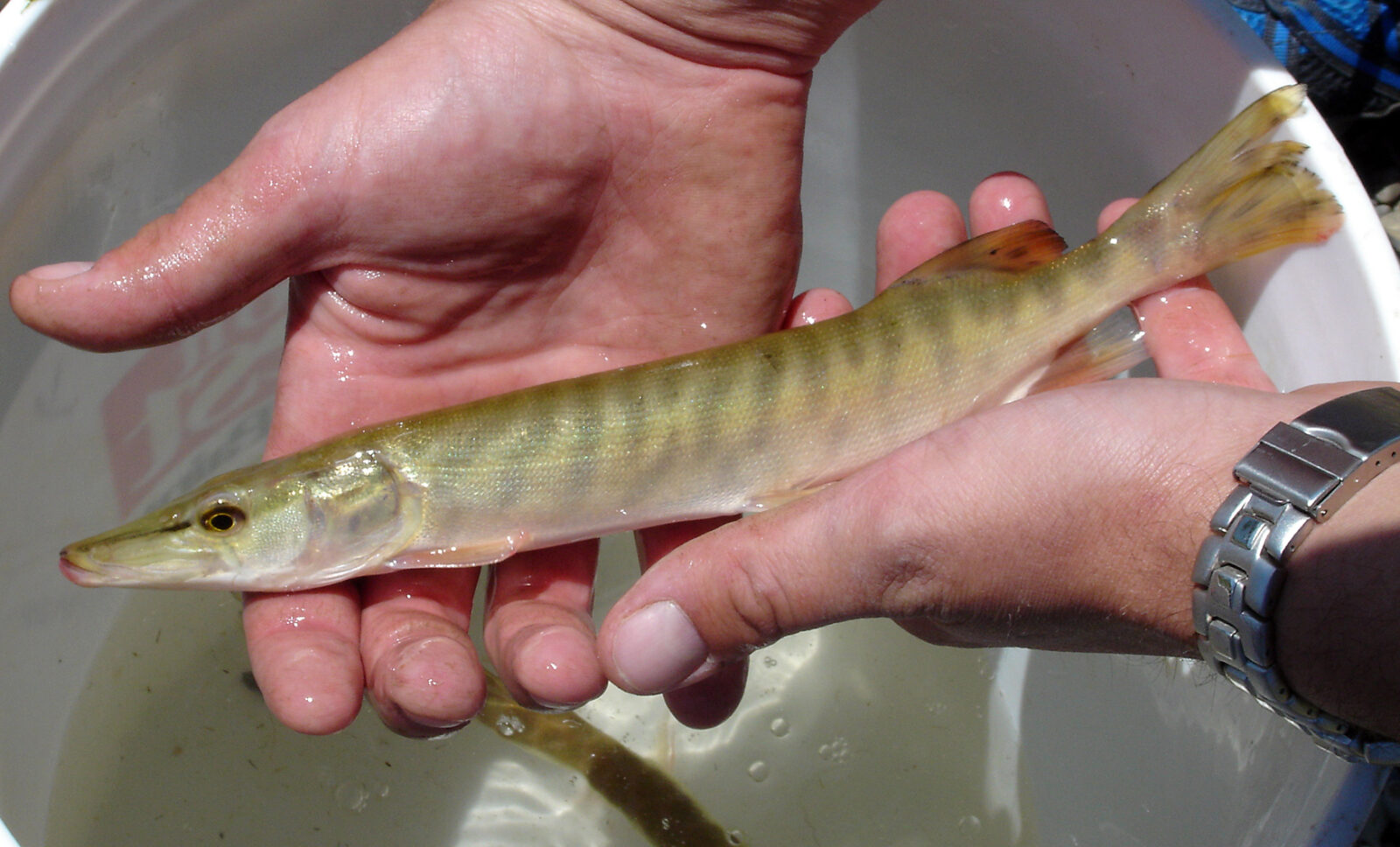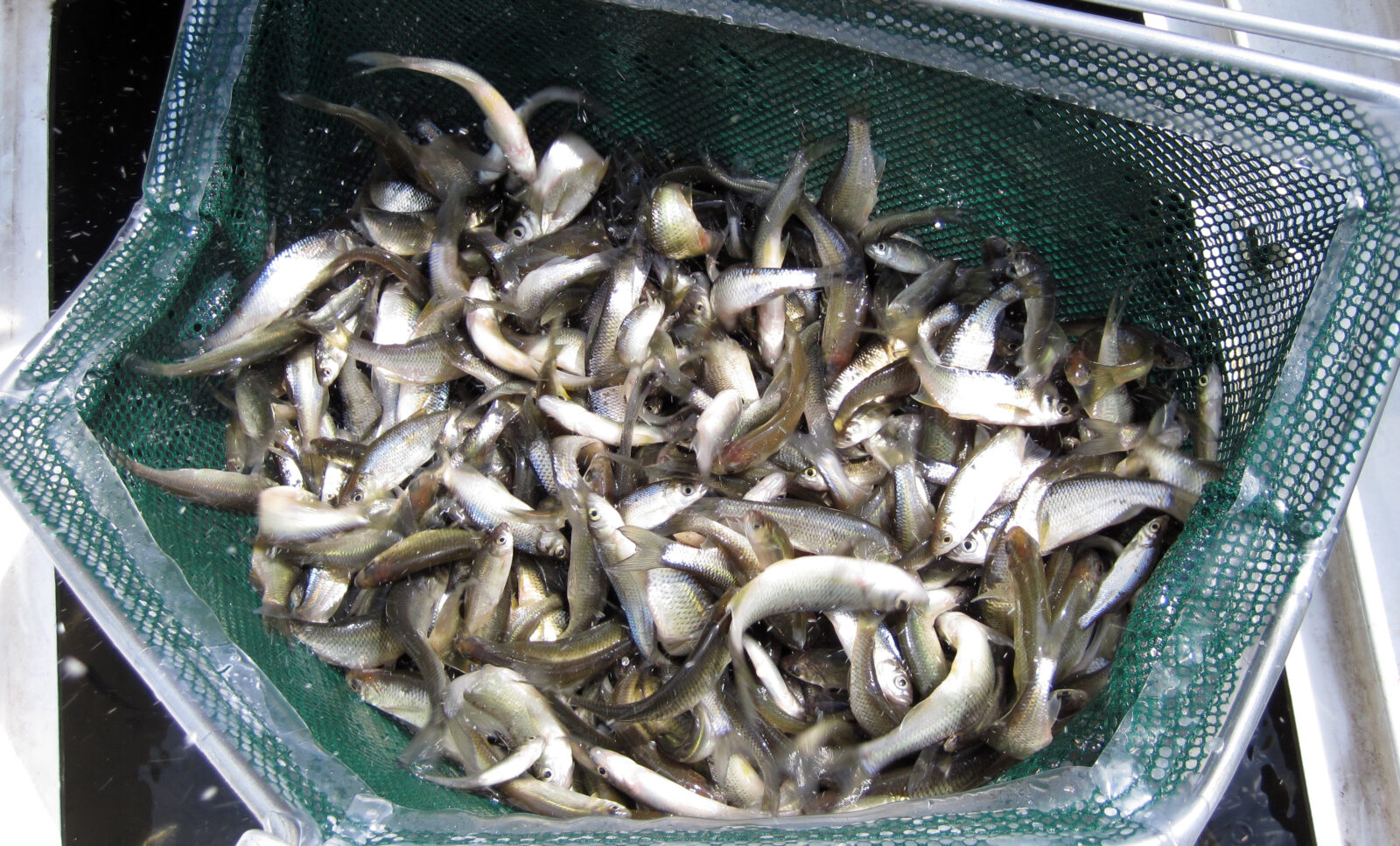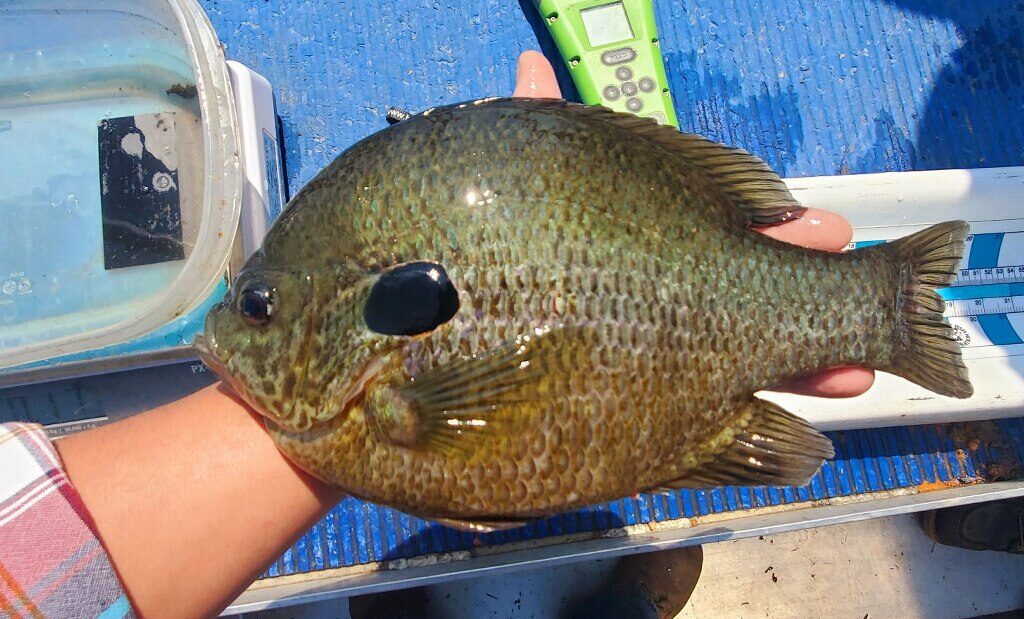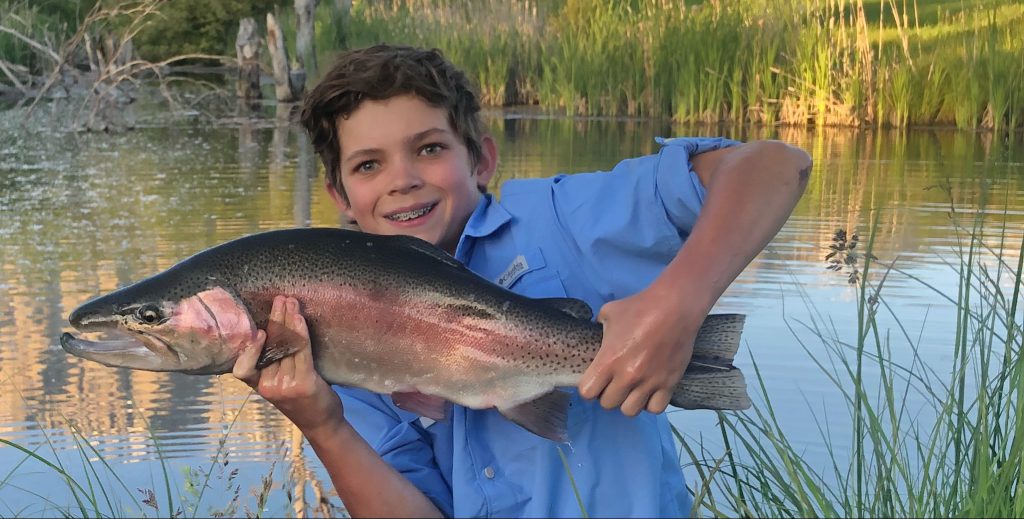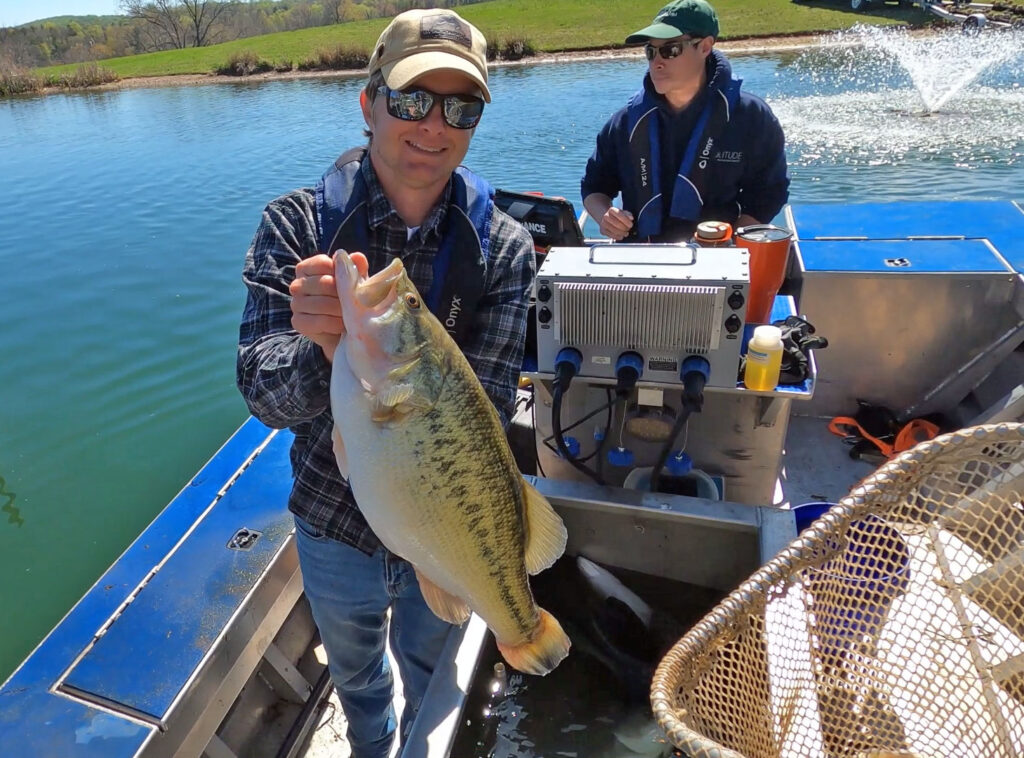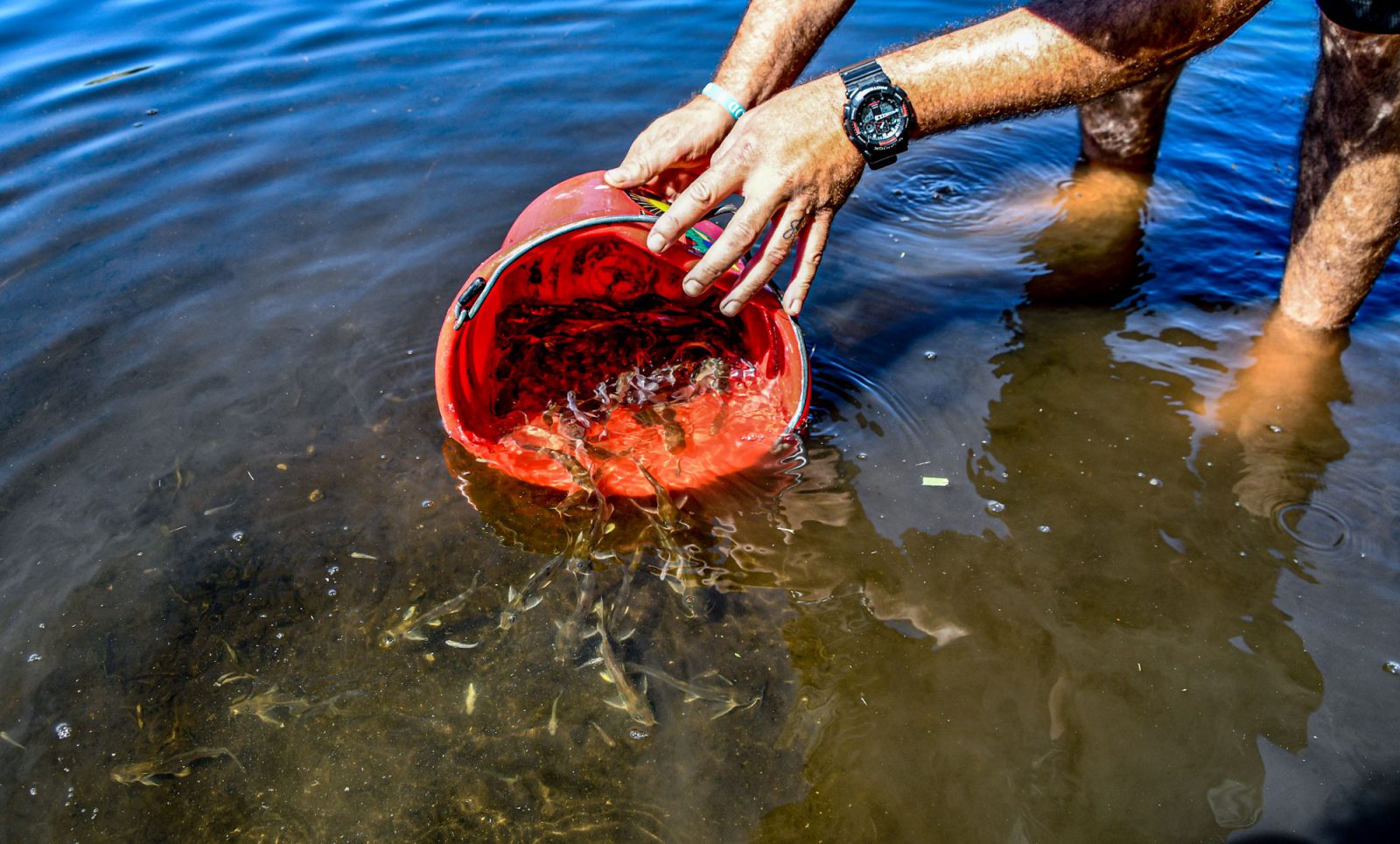
What Fish Are Best to Stock in the Fall Season?
As the temperatures drop and the days become shorter, we see signs of Autumn all around us. Though it’s common for lake and pond maintenance priorities to take a back seat as we spend more time indoors, fall is a key transitional season for stakeholders to set their fisheries up for success come spring AND maximize them during the winter months. This is particularly relevant for trophy fisheries with fish stocking plans.
Fish to Stock In the Fall
Explore our quick-hit list of fish species to stock in the fall! Scroll to the right to see all the fish species you should stock during the cooler months. Want more information? Keep reading our educational blog below!
Stock Warm, Cool, or Cold-Water Fish Species This Fall
Stocking ponds with fish is an important strategy for many fisheries management programs. Fall provides an excellent window to introduce a variety of cool- and cold-water fish species that are ideal for stocking, which should be introduced when temperatures range between 50 to 70 degrees Fahrenheit. During this period, water temperatures and dissolved oxygen levels are most consistent throughout the waterbody, helping fish to acclimate as successfully as possible.
Conduct An Electrofishing Survey Before Stocking
Fish pond stocking programs can differ based on stakeholder goals. Before stocking any fish in a lake or pond, professionals often complete electrofishing surveys to identify existing fish in the waterbody. During an electrofishing survey, Fisheries Biologists introduce a mild electric current to the water using a boat with specialized equipment. Fish in the vicinity are temporarily stunned and float to the surface, allowing biologists to evaluate species composition and the overall health of the food chain. With this information, they can determine optimal fish stocking strategies based on the stakeholder’s desired outcome.
How does electrofishing work?
Fish Stocking Strategy for Trophy Fisheries
If the goal is to grow bigger, better trophy fish, Fisheries Biologists may introduce several forage species to fuel Largemouth Bass, Titain Bass, and other predator fish over the winter months. Some of the most popular forage pond fish species include Bluegill and Golden Shiners.
In some cases, stakeholders want fishing fun to continue after summer ends. Fisheries Biologists can stock a wide array of cool- and cold-water fish depending on the region and local fish stocking regulations. Cool-water fish like Tiger Muskie, Northern Pike, Walleye, Smallmouth Bass, and Yellow Perch are commonly stocked in northern latitudes and can be exciting catches throughout the fall months.
Stock Cold-Water Fish for Fun Winter Fishing
Cold-water fish, on the other hand, can provide fun fishing opportunities all winter long. Rainbow Trout, Brown Trout, Brook Trout, and Tiger Trout remain active until spring arrives or temperatures exceed 50 to 60 degrees.
Grow Big Fish with An Integrated Fisheries Management Plan
It’s important to note that fish stocking is just one part of a management program. Fisheries are delicate ecosystems that can be significantly affected by abrupt changes in weather or water quality. By partnering with a professional Fisheries Biologist, stakeholders can help ensure their fisheries receive diligent care all year round through the use of supplemental feeding, water quality testing, habitat management, and other solutions tailored to your unique property, budget, and long-term goals.
Contact Us for Fall Fish Stocking
Call us at 888-480-5253 or complete the form below to connect with a Fisheries Biologist.
SOLitude Lake Management is a nationwide environmental firm committed to providing sustainable solutions that improve water quality, enhance beauty and preserve natural resources.
SOLitude’s team of aquatic scientists specializes in the development and execution of customized lake, stormwater pond, wetland and fisheries management programs. Services include water quality testing and restoration, algae and aquatic weed control, installation and maintenance of fountains and aeration systems, shoreline erosion control, muck and sediment removal and invasive species management. SOLitude partners with homeowners associations, golf courses, private landowners, businesses and municipalities. SOLitude Lake Management is part of Rentokil, a leading business services company, operating across the United States, Canada and Puerto Rico.
For more information, visit SOLitude Lake Management at solitudelakemanagement.com, and connect on Facebook, LinkedIn and Twitter.

